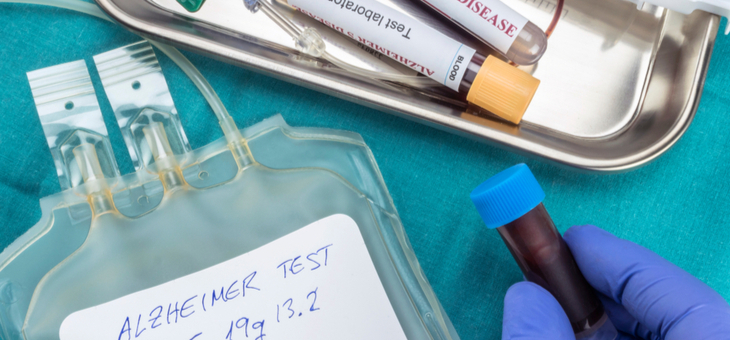An easy way to detect Alzheimer’s before symptoms develop is critical for early treatment and Swedish researchers think they might have found a way to do it.
The Lund University researchers have developed an algorithm that combines data from a simple blood test and brief memory tests to predict who will develop Alzheimer’s disease with great accuracy.
Currently the most accurate Alzheimer’s tests measure the proteins tau and beta-amyloid via a spinal fluid sample or PET scans, but these methods are expensive and only available at a few specialised memory clinics worldwide.
Read more: The age you gain weight plays a role in Alzheimer’s risk
Testing that would diagnose Alzheimer’s early and accurately is becoming an increasingly prized discovery as new drugs that slow the progression of the disease are hoped to become available in the not too distant future.
Professor Oskar Hansson from Lund University said their research showed that a combination of relatively easily accessible tests could be used for early and reliable diagnosis of Alzheimer’s disease.
The study examined 340 patients with mild memory impairment in Sweden and was then confirmed by trying the algorithm on a study of 543 subjects from North America.
Read more: How to keep your brain fighting fit
A combination of a simple blood test (measuring a variant of the tau protein and a risk gene for Alzheimer’s) and three brief cognitive tests that only take 10 minutes to complete, predicted with over 90 per cent certainty which patients would develop Alzheimer’s dementia within four years.
The algorithm was significantly more accurate than the clinical predictions by the dementia experts who examined the patients, Prof. Hansson said.
“Our algorithm is based on a blood analysis of phosphylated tau and a risk gene for Alzheimer’s, combined with testing of memory and executive function,” Associate Professor Sebastian Palmqvist said.
Read more: Dementia linked to poor kidney function
“We have now developed a prototype online tool to estimate the individual risk of a person with mild memory complaints developing Alzheimer’s dementia within four years.”
One clear advantage of the algorithm is that it has been developed for use in clinics without access to advanced diagnostic instruments.
The researchers are hopeful that in the future, the algorithm might therefore make a major difference in the diagnosis of Alzheimer’s within primary healthcare settings.
Simple diagnostic tools for Alzheimer’s could also improve the development of drugs, as it is difficult to recruit the suitable study participants for drug trials in a timely and cost-effective manner.
“The algorithm will enable us to recruit people with Alzheimer’s at an early stage, which is when new drugs have a better chance of slowing the course of the disease,” Prof. Hansson said.
Are you worried about your memory? Are you concerned that your memory could be pointing towards a future Alzheimer’s diagnosis? Would you like to know if you were in the early stages of developing Alzheimer’s?
If you enjoy our content, don’t keep it to yourself. Share our free eNews with your friends and encourage them to sign up.

